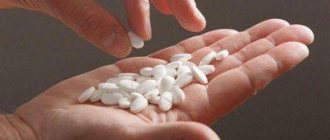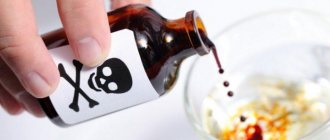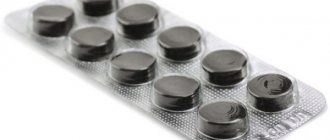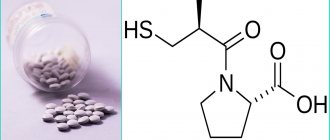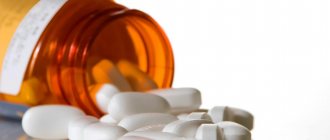Even the most common and seemingly safe pills can lead to very serious consequences if used incorrectly. Increasingly, toxicologists are recording cases of drug overdose with fatal outcomes. This usually happens for the following reasons:
- negligence. Free access to tablets if there are children or incapacitated family members;
- self-medication;
- alcohol. In many cases, fatal pill overdoses have occurred due to drug interactions with ethanol;
- violation of the expiration date;
- suicide.
The latter is the most common. Grief, long-term depression, illness - all this can cause a person to start thinking about taking death pills. According to statistics, almost half of suicide attempts are carried out through medications.
Groups of sleeping pills
In pharmacology, hypnotics are not classified as a separate group. Different medications have this effect, and accordingly, they will have different mechanisms of action and their own side effects.
Relatively harmless sleeping pills that are available without a prescription are herbal preparations and combined herbal remedies. These include:
- "Corvalol";
- "Novopassit";
- "Valocordin";
- "Dormiplant";
- Valerian tincture;
- motherwort tincture.
These drugs are prescribed for sleep disorders due to increased anxiety, irritability, and nervousness. Their action is mild, based on a sedative effect.
Next, we present a modern classification of sleeping pills, which are far from so harmless in their side effects.
- GABA antagonists are drugs that act on benzodiazepine receptors in the brain. This group includes benzodiazepines themselves (“Librium”, “Phenazepam”, “Diazepam”, “Nozepam” and others) and drugs of various chemical structures - “Zaleplon”, “Zolpidem”, “Zopiclone”.
- Barbiturates: phenobarbital, sodium etaminal.
- Anesthesia: chloral hydrate, sodium hydroxybutyrate.
- Histamine receptor blockers: Diphenhydramine, Doxylamine.
- Sleep hormone analogues: melatonin (Melaxen) or melatonin receptor antagonists (Ramelteon, Tasimelteon).
There is also a conditional division of drugs into first-generation sleeping pills (barbiturates, bromides, antihistamines), second (benzodiazepines) and third (melatonin drugs, new drugs of different groups).
Humanity has not yet invented it, so doctors are forced in each specific case to select a drug with maximum benefit for the patient and minimal side effects.
Let us dwell in more detail on the frequently used or dangerous representatives of the “sleeping pills kingdom”.
Diagnostics
Diagnosis of drug poisoning is based on an external examination of the patient to identify the following signs:
- Apnea;
- Pronounced miosis (constriction of the pupil);
- Traces of injections of various ages;
- Increased breathing rate;
- Naloxone test – the patient’s condition improves with the administration of naloxone.
| tranquilizer | class identifiers | Synonyms | usage | Clinical data | Drugs.com | |||
Barbiturate overdose
The sad first place in the number of deaths is taken by an overdose of sleeping pills from the group of barbiturates:
- "Barbital";
- "Phenobarbital";
- "Barbital sodium";
- "Etaminal sodium";
- "Cyclobarbital";
- "Barbamil";
- "Hexobarbital."
Barbiturates disrupt the activity of nerve cells, resulting in a depressant effect on the central nervous system. They not only slow down the mental activity of the brain, causing drowsiness and reducing anxiety, but also have anticonvulsant properties and cause muscle relaxation.
Barbiturate-induced sleep differs from natural sleep. Often patients are haunted by nightmares, the structure of sleep itself changes - the ratio of fast and slow phases.
Common side effects from barbiturate use include:
- hiccups;
interrupted sleep; - daytime sleepiness;
- inhibited reaction;
- visual impairment;
- muscle twitching;
- hiccups
In high doses, the drug causes respiratory and cardiovascular depression, which leads to a risk of death. The lethal dose of a barbiturate sleeping pill is only ten times higher than the therapeutic dose. But if timely medical care is provided, there is a good chance of saving the patient even with a hundredfold overdose.
Acute barbiturate poisoning is classified into four stages.
- depression
Mild form of poisoning. Within 10–15 hours, the victim exhibits drowsiness, weakness, lack of coordination, incoherent speech, and increased salivation.
- Superficial coma stage. Deep sleep, pupillary and tendon reflexes are reduced. Breathing is impaired, the tongue may sink, and increased salivation is noted. The victim does not regain consciousness. This stage lasts for 1–2 days.
- In the severe stage, a deep coma develops, the pupils do not react to light, the skin becomes cold, breathing is impaired, blood pressure decreases and body temperature drops. Respiratory arrest, pulmonary and cerebral edema are possible. This period can last 3–5 days.
- The fourth stage is post-comatose. Characterized by depression, mental disorders, and lack of coordination.
Prevention methods
It is possible to avoid an overdose of the drug by following simple preventive rules.
What to do:
- Motherwort is used only as prescribed by a specialist, in the indicated dosage, which cannot be exceeded.
- If any discomfort occurs, it is recommended to immediately contact a medical facility.
- Motherwort should be stored in places inaccessible to children.
- Self-treatment is not recommended.
An overdose of motherwort can cause certain troubles to a person. To avoid poisoning, you must be careful when taking the drug and not self-medicate.
Benzodiazepine overdose
Benzodiazepines are similar in their mechanism of action to barbiturates - they also act on GABA receptors. They also disrupt normal sleep architecture and have a number of side effects:
- muscle relaxation;
- lethargy;
- mental disorder.
Poisoning with sleeping pills of this drug group most often occurs during suicide attempts. The difference from a therapeutic dose to a lethal one is quite large - even exceeding a single dose tens of times entails not very severe poisoning. The toxic effect is enhanced when taken together with alcohol.
The most acute reaction occurs with an overdose of the following drugs:
- "Diazepam";
- "Relanium";
- "Sibazon";
- "Relium".
Midazolam and Zolpidem can be included in this group, as they have similar characteristics.
In case of benzodiazepine poisoning, the following develops:
- increased heart rate
lethargy;
- slurred speech;
- imbalance;
- decreased reflexes;
- constriction of the pupils;
- increased heart rate;
- drop in blood pressure;
- decrease in body temperature.
Coma and difficulty breathing are rare, mainly when the effect of sleeping pills is enhanced by taking alcohol or other drugs that depress the central nervous system.
Sedative medications
Poisoning with sedatives ranks second after intoxication with sleeping pills. A distinctive feature of sedative drugs is their effect on the central nervous system, with characteristic stimulating or sedative effects on the mental area of the brain. It also turns out to have a certain antidepressant (sometimes intoxicating) effect.
Piracetam overdose
Overdose of Phenazepam
Symptoms of tenoten overdose
Preparations based on natural substances have a gentler effect on the body.
Moreover, they, to a greater or lesser extent, affect the functioning of the subcortical brain centers.
Classification
Considering their origin, two groups of sedatives are distinguished: plant-based and synthetic. There is another complex group, which includes drugs produced on the basis of plant raw materials and synthetic components.
The advantage of natural-based medications is their milder effect on the body and a small range of side effects that are reversible.
Kinds
Depending on the pharmacological effect, they are also divided into groups. The symptoms exhibited by toxemia with sedatives are determined by their belonging to each of these groups.
Sedatives
They are classic preparations made on a plant base or containing bromine. Among these sedatives, infusions based on valerian, motherwort, as well as combined herbal remedies have become very popular.
Tranquilizers (anxiolytics)
These are psychotropic medications used to suppress feelings of anxiety, emotional overexcitation, fears and other psychological disorders. Most of these drugs are made on the basis of benzodiazepines.
Neuroleptics
These are very strong drugs, with a pronounced sedative effect. They find application in the practice of psychiatry. Prescribed for neuroses and psychoses. May be prescribed to lower blood pressure. Very effective in the treatment of delusional and aggressive states, hallucinations.
Normothymic
This is a group of psychotropic drugs used to stabilize the emotional background in mentally ill people.
Psychotonic
These are psychostimulants. They are used in the treatment of psychogenic depressive states, alcoholic syndromes and psychoses, further consequences of encephalitis, as well as narcolepsy. They can also be used to relieve and eliminate fatigue, periodically increase performance and mental activity.
Antidepressants
Antidepressants have a psychostimulant effect
Components that exhibit an antidepressant effect in endogenous (arising against the background of complete well-being or minor mental trauma) depression. The difference in the action of antidepressants, in contrast to psychostimulants, lies in their abilities. The latter have analeptic properties, while antidepressants have a psychostimulating effect.
Advantages and disadvantages
The objective advantage of sedative medications is the reduction in the degree of nervous tension, which eliminates the risk of various complications resulting from stressful situations.
However, such means also have disadvantages. They often provoke addiction. This creates the need to take more serious medications.
This, in turn, is fraught with psychological addiction.
Moreover, these drugs, in particular synthetic ones, have a list of side effects.
Bromide overdose
potassium bromide
This group of sleeping pills includes:
- "Brominated";
- sodium or potassium bromide.
These medications enhance inhibition processes in the cerebral cortex and have a calming effect.
Side effects include:
- irritability;
- speech disorder;
- with prolonged use, symptoms of bromism appear - runny nose, cough, conjunctivitis, general weakness, skin rash.
An overdose of sleeping pills from the bromide group is accompanied by impaired coordination of movements, dilated pupils, and increased heart rate.
Poisoning with the sleeping pill “Bromizal”, possibly due to its ingestion in an amount of 20 grams. Strong inhibition of the central nervous system develops, the respiratory center is depressed. Blood circulation is disrupted, the level of oxygen in the blood drops. Intestinal paresis, kidney and lung damage may occur.
Normal dose of motherwort per day
As modern clinical studies show, this plant contains flavonoid-type glycosides, alkaloids, tannins, ascorbic acid and other components. The medicine has a number of therapeutically proven effects on the human body:
- Normalizes the processes of excitation and inhibition in the central nervous system;
- Ensures stability of the autonomic nervous system;
- Has a beneficial effect on heart rhythm
, reducing the increased frequency of contractions and having a direct hypotensive effect; - Helps overcome dyspeptic disorders as part of complex symptomatic therapy.
In terms of effectiveness, motherwort is often compared with drugs based on lily of the valley, but the intensity of its direct effect is significantly higher, especially in the context of cardiac therapy.
Overdose of antihistamines
Drugs belonging to this group block histamine receptors. As a result, histamine, which is a “wakefulness mediator,” loses its ability to affect the central nervous system. This group includes first generation antihistamines:
- Diphenhydramine (diphenhydramine);
- "Donormil" (doxylamine);
- "Suprastin";
- "Fenkarol".
These medications are available at pharmacies without a prescription. They help you fall asleep quickly, but do not increase the duration of sleep. Side effects include drowsiness and daytime lethargy.
In case of an overdose of sleeping pills of this group, the consequences can be expressed in dizziness, dry mouth, muscle tremors, blurred vision, nausea and increased sensitivity to light.
Video: beneficial properties of motherwort
Contents of the article: classList.toggle()»>expand
Motherwort is a popular medicinal plant, used not only in folk but also in conservative medicine. Its beneficial properties help get rid of a number of negative symptoms in disorders of the central nervous system, heart, and gastrointestinal tract. However, excessive use of this drug can cause serious problems with the body.
What is the optimal dose of motherwort? Are there any noticeable symptoms after an overdose? How dangerous are the consequences of data poisoning? You will read about this and much more in our article.
New generation of sleeping pills
Currently, to normalize sleep, it is preferable to use new generation drugs developed at the end of the 20th century. These include:
- cyclopyrrolon derivatives - Zopiclone (imovan);
- imidazopyridine derivatives (“Zolpidem”);
- pyrazolopyrimidine derivatives (“Zaleplon”).
A practically harmless sleeping pill is Melaxen (melatonin). This drug is able to normalize the stage of falling asleep, and the duration of sleep is regulated by the natural production of melatonin. It does not have a negative effect on the structure of sleep, maintaining all phases in a natural ratio. During the day, it does not affect your well-being, as it is quickly eliminated from the body. Even a significant overdose of Melaxen does not lead to any serious consequences.
Treatment
Therapy within the walls of the hospital is prescribed according to the severity of the patient’s poisoning and the drug that caused the intoxication. A person is placed in an intensive care unit if loss of consciousness or coma is recorded. An artificial lung ventilation and heart control device is used. The hemodialysis procedure is done when the kidneys stop working.
The remaining toxin is removed by administering rehydration agents orally.
After eliminating the toxic effect, supportive medications are prescribed for the weakened body. This is done to eliminate the consequences of poisoning.
Indications for the use of sleeping pills
Why are sleeping pills needed? They are prescribed for sleep disorders. There are two main varieties:
- sleep disturbance;
- disturbance in sleep duration, frequent waking up.
The answer to the question: “are sleeping pills harmful or not?” can only be given by the attending physician. Of course, these drugs themselves have many negative aspects - addiction, disruption of brain activity, residual effects. According to WHO recommendations, to normalize sleep, it is advisable to use non-drug methods - normalizing mental activity, relieving anxiety, working with a psychologist. But there are cases when the use of drugs is simply necessary and the harm from sleeping pills is insignificant, but the benefits are enormous.
Antidepressant poisoning: what to do
In fact, for any poisoning, the first aid measure is gastric lavage. To rinse at home, you need to dissolve table salt in water. You should drink the saline solution once, and then take activated charcoal several times. Then the patient is given a cleansing enema.
To relieve seizures, the patient is given an intravenous injection of benzodiazepines in a dosage of no more than 0.5 mc/kg. If the patient does not experience tachycardia, but has a symptom such as dilated pupils, then he is administered intravenous eserine, two to three times a day.
We remind you that only qualified specialists can provide such assistance to a patient, so the first thing to do is call an ambulance. The fact is that poisoning with antidepressants is a serious threat to human life, it occurs individually, and only doctors know what can be done in such conditions and what cannot be done. In order not to harm the victim even more through negligence, do not try to cope with the poisoning yourself!
Tranquilizers for withdrawal symptoms
It is impossible to combine the use of alcohol and tranquilizers - this is a fact. But it is worth clarifying that tranquilizers can be prescribed by a doctor to a patient with chronic alcoholism. In particular, these drugs are indicated for the development of withdrawal symptoms. This pathological condition develops in patients with alcoholism some time after stopping drinking alcohol. Manifests itself in the form of sweating, rapid heartbeat, hand tremors, anxiety, irritability, and feelings of guilt. Withdrawal syndrome lasts several days. To relieve this condition, various drugs are used, including tranquilizers. These medications increase the positive effects of GABA, thereby reducing overexcitation of neurons.
Note! Withdrawal syndrome and hangover are different medical concepts. A hangover appears the next morning after drinking alcohol and is expressed by poor health, lasting no more than a day
At this time, the blood still contains ethanol, which means tranquilizers cannot be taken. This can lead to dire consequences.
If withdrawal symptoms are severe and are not corrected, this can lead to alcohol psychosis. The initial signs of incipient alcoholic psychosis are insomnia, mood swings, and anxiety. Soon (usually in the late afternoon) hallucinations and delusions occur. The patient does not orient himself in the external environment, does not understand where he is, does not know today's date. In this state, a person poses a danger to the people around him, because he is not critical of his condition and can commit aggressive acts. For the treatment of alcoholic psychosis, detoxification agents are prescribed to cleanse the body of toxic breakdown products of ethanol. Mental disorders can be eliminated with the help of tranquilizers. The use of these medications relieves anxiety, fear, hallucinations, delusions, and normalizes sleep. Diazepam, Phenazepam, Lorazepam are often prescribed, both by injection and in tablet form.
Grigorova Valeria, medical observer
21, total, today
